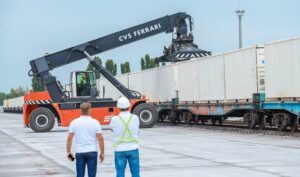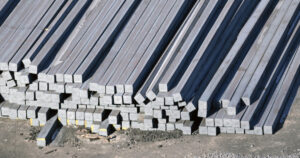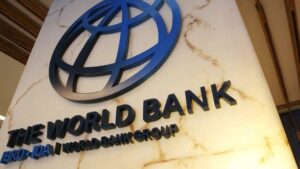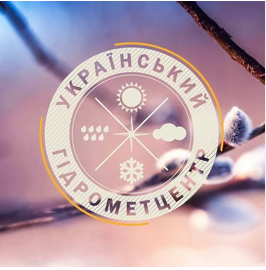
Passenger traffic across the Ukrainian border in the sixth week of spring, from April 5 to 11, with the end of school holidays, remained at the level of the previous week – 488 thousand, while the net inflow decreased from 40 thousand to 22 thousand, according to the State Border Guard Service on Facebook.
According to the data, the flow of entry decreased by 3.4% – from 264 thousand to 255 thousand, while the flow of exit increased by 4% – from 224 thousand to 233 thousand.
The number of vehicles crossing the checkpoints this week increased from 122,000 to 127,000, while the flow of vehicles carrying humanitarian aid decreased from 546 to 625.
According to the State Border Guard Service, as of 12:00 on Saturday, the queue to leave the border with Poland was only at the Ustyluh checkpoint – 20 cars, on the border with Slovakia at the Uzhhorod and Maly Berezny checkpoints – 25 and 10 cars, respectively, while on the border with Hungary at the Tisa and Vylok checkpoints – 15 and 10 cars, respectively.
The total number of people crossing the border this week in 2025 is slightly higher than last year’s: 238 thousand people left Ukraine and 234 thousand entered during the same seven days, with a traffic flow of 116 thousand. But last year, Easter was celebrated on March 31 (Western rite) and May 5 (Eastern rite), while this year the celebration falls on one day – April 20, and an increase in passenger traffic is expected.
As reported, on May 10, 2022, the outflow of refugees from Ukraine, which began with the outbreak of war, was replaced by an influx that lasted until September 23, 2022 and amounted to 409 thousand people. However, since the end of September, possibly under the influence of news about mobilization in Russia and “pseudo-referendums” in the occupied territories, and then massive shelling of energy infrastructure, the number of people leaving has been exceeding the number of people entering. In total, from the end of September 2022 to the first anniversary of the full-scale war, it reached 223 thousand people.
In the second year of the full-scale war, the number of border crossings to leave Ukraine, according to the State Border Guard Service, exceeded the number of crossings to enter by 25 thousand, while in the third year – by 187 thousand, and since the beginning of the fourth year, a small net inflow of 3 thousand has been recorded.
As Deputy Economy Minister Serhiy Sobolev noted in early March 2023, the return of every 100,000 Ukrainians home results in a 0.5% increase in GDP.
In its January inflation report, the National Bank estimated the outflow from Ukraine in 2024 at 0.5 million (0.315 million according to the State Border Guard Service). In absolute terms, the number of migrants staying abroad will increase to 6.8 million in 2024. The NBU also maintained its outflow forecast for 2025 at 0.2 million.
According to updated data from the UNHCR, the number of Ukrainian refugees in Europe as of March 20, 2025, was estimated at 6.373 million, and 6.933 million worldwide, which is 26 thousand more than as of February 19.
In Ukraine itself, according to the latest UN data, 3.665 million internally displaced persons (IDPs), including approximately 160 thousand people, were displaced from the frontline areas in the east and south between May and October 2024 due to the intensification of hostilities.

Lemtrans, Ukraine’s largest private rail transportation operator, plans to build a container terminal in Fastiv (Kyiv region), the company’s website reports.
“The terminal in Fastiv will be a strategic link in the development of transport logistics in the region. The project will help optimize logistics chains, expand export opportunities for Ukrainian producers and create conditions for the integration of local businesses into global trade,” said Oleksandr Tkachuk, Director of Terminal Network Development at Levada Cargo.
The company added that in 2024 it invested UAH 478 million in logistics and infrastructure projects, which is three times more than in 2023. The main emphasis was placed on the development of the terminal and container business, where the amount of investment amounted to UAH 441 million.
In September 2024, Lemtrans Group completed the first stage of construction and opened the Vinnytsia Container Terminal (VCT).
As reported, the total volume of Lemtrans transportation in 2024 amounted to 15.9 million tons, which is 6% less than in 2023.
Based on the results of their activities in 2024, the companies of the Lemtrans group transferred more than UAH 712 million in taxes and fees to the budgets of all levels. “In 2024, Lemtrans transferred about UAH 647 million to the state budget. Local budgets were replenished by UAH 66 million. In addition, Lemtrans Group paid over UAH 59 million in unified social tax.

In the period from April 1 to December 31 of this year, Kharkiv-based aircraft manufacturer FED JSC will pay dividends to its shareholders based on the results of its operations in 2024 totaling UAH 40 million at the rate of UAH 4.575 thousand per share with a par value of UAH 57.9 thousand.
According to a report in the disclosure system of the National Securities and Stock Market Commission of Ukraine (NSSMC), the relevant decision was made by the general meeting of shareholders on March 31.
According to the NSSMC, as of the third quarter of 2024, more than 98% of FED JSC shares are owned by the company’s director Viktor Popov.
In particular, the shareholders’ meeting re-elected the Supervisory Board for a new term in the same composition (three members, including the Chairman of the SB Valery Fadeev).
As reported, FED ended 2024 with a net profit of UAH 181.406 million, down 43% year-on-year in 2023.
At the end of 2023, FED JSC allocated UAH 32 million out of the net profit of UAH 318.3 million for dividends, at the rate of UAH 3.66 thousand per share with a par value of UAH 57.9 thousand.
FED JSC is one of the leading enterprises in Ukraine, specializing in the development, production, maintenance and repair of aviation, space and general engineering units.
The company has not yet announced the amount of revenue for the whole of last year, and in January-September 2024 it decreased by 35.2% compared to the same period in 2023 – to UAH 586.67 million.

In January-March this year, Ukraine reduced exports of semi-finished carbon steel products in physical terms by 34.8% year-on-year to 294,202 thousand tons.
According to statistics released by the State Customs Service (SCS) on Tuesday, exports of carbon steel semi-finished products fell by 37.4% to $138.386 million in monetary terms.
The main exports were to Bulgaria (43.06% of supplies in monetary terms), Turkey (20.15%) and Poland (9.44%).
During the period, Ukraine imported 2.902 thousand tons of semi-finished products worth $2.339 million from the Czech Republic (83.03%), Italy (16.59%) and Germany (0.38%).
As reported, in 2024, Ukraine increased exports of carbon steel semi-finished products in physical terms by 56.7% compared to 2023 – up to 1 million 886.090 thousand tons, while revenue in monetary terms increased by 52.4% to $927.554 million. The main exports were made to Bulgaria (32.06% of supplies in monetary terms), Egypt (18.50%) and Turkey (11.14%).
In 2024, Ukraine imported 306 tons of semi-finished products worth $278 thousand from the Czech Republic (88.13%), Romania (7.19%), and Poland (2.88%), while in 2023 it imported 96 tons worth $172 thousand.

Ukraine has received $50m from the World Bank under the health care project “Transforming Health Care through Reform and Investing in Efficiency” (THRIVE), the Finance Ministry has said. It noted that the condition for receiving these funds was to raise the level of the capital rate of primary health care (payment for care of one patient who filed a declaration on the choice of a doctor who provides primary health care) to a minimum of 825 UAH, and according to the government decision of December 2024, such rate for 2025 is 844.4 UAH instead of 786.65 UAH in 2024.
THRIVE is one of the projects implemented using the financial instrument “Program for Results” (PforR), which provides for the achievement of indicators, upon verification of which Ukraine will attract funds determined by the relevant agreements, said the Ministry of Finance.
The purpose of the project is to assist the government in improving the Medical Guarantee Program (MGP) to create a reliable health care system. The Loan Agreement and Financing Agreement totaling $449 million were signed on December 10, 2024, of which $249 million was provided by Japan. Last year, Ukraine has already received $220 million, which is stipulated in the Loan Agreement (100% of the disbursed funds).

On Sunday, April 13, Ukraine is mostly without precipitation, only at night in the south-east of the country in some places a little wet snow, at night and in the morning in some places fog, reported Ukrhydrometcenter. Wind of variable directions, 3-8 m/s. At night, frosts in the air 0-5°; daytime temperature 10-15° of heat, in western regions up to 18°. In the Carpathians, no precipitation; temperatures at night 3-8° frost, daytime 6-11° warm.
In Kiev on April 13, no precipitation. Wind of variable directions, 3-8 m/s. At night, frosts in the air 0-2°; daytime temperature 13-15° warm.
According to the Central Geophysical Observatory im. Borys Sreznevsky, in Kiev on April 13, the highest daytime temperature was 25.6° in 1972, the lowest nighttime temperature was -4.7° frost in 1923.
Monday, April 14, without precipitation, only in the afternoon in the western regions in some places light rain, in some places thunderstorms. At night and in the morning in the southern part in some places fog.
Wind south, south-west, 7-12 m/s, in the Carpathians, most of the northern, Khmelnytsky and Vinnitsa regions gusts of 15-20 m/s in the afternoon.
Temperatures at night 1-6° of heat, in Ukraine, except western regions, on the surface of the soil frost 0-3°; in the daytime 13-18° of heat. In the Carpathians, no precipitation at night, light rain in places during the day; temperature at night 0-5° frost, daytime 8-13° warm. In Kiev on April 14, no precipitation. The wind is south, 7-12 m/s. The temperature at night is 2-4° of heat, during the day 15-17°.